During the 2020 GREEN4SEA Athens Forum, Mr. Andreas Kokkotos, Partner, ARGO NAVIS Engineers Ltd., explained that confusion with owners’ supplied items can result misunderstandings, delays or even to missing equipment. In light of the situation, Mr. Kokkotos highlighted the reasons why the crew must be familiar with convention requirements before the ship leaves the shipyard.
Having completed more than 200 studies for engineering retrofits, as well as more than 150 installations onboard ships based on our studies, and having completed almost 100 supervision installations from our engineers, it is time to discuss about some trouble-making causes.
The first and most important is that a lot of our clients are selecting the system without doing any study. They simply check the cost. So, we have serious issues in a big number of our studies where practically they system cannot fit inside the ship. This creates delays, modifications, and has definitely an effect to the cost of the installation.
The second challenge is delayed decisions. Almost on a daily basis, we receive telephone calls from superintendent engineers, from technical managers from our clients, that they have to install the system within the next two months. It is really difficult to tell them that they do not have time, or at least we do not have time to do a decent study, and for themselves to do a proper preparation.
A very important issue is superintendent engineers’ preparation gaps. We have installation of scrubbers, Panama Canal modifications, typical works of a special survey, and all these have to be supervised by one superintendent engineer. Usually, the superintendent engineer has not enough time to focus on everything.
One of the biggest mistakes that still exists and we still receive opinions from clients, is that BWTS retrofit is practically pipeworks. It is not. We have cases that some of our clients decided to install pipes one year ago, but one year later they are still trying to complete the installation, because it is not only pipes. It is cables, foundation, interlocks, and many more.
One very challenging issue, because it is related to the cost of the installation, is owner supplied items. In our studies we are giving a bill of materials and in many cases the clients decide to buy some things themselves and send them to where the installation will take place. Unfortunately, we are facing delays to the installations because of missing equpment or misunderstandings or because we are running around the ship in order to find where is this valve, which was bought by the superintendent engineer and was received by the chief engineer, who is not onboard the ship because he has been replaced by a new chief engineer. There is a lot of logistics involved in the whole process.
The problem is that we have a lot of jobs taking place at the same time. Actually we were expecting that. The shipyards have a lot of job, they do not have enough people, meaning delays, which have an effect to the quality. We need to have a proper supervision, but in most of the cases there is no supervision of the works at all. This leads not only to poor quality, but to installation mistakes that may affect the proper operation of the system.
I would like to focus on improper commissioning of the systems. When the system is installed, it has to be commissioned by commissioning engineers of the maker. Usually, the makers require five days, one week, with two people, provided that installation works have been completed. In 99% of the cases this does not happen because there are delays on the installation works, because the ship has to go or there is a new charter or other factors. Practically, the superintendent engineer cares only to receive the certificate. So we are doing some tests, only to check that the system runs, which may take a couple of hours, but it is not a full testing of the system. Many of the commissioning requirements are done in a hurry. This may also affect the proper operation of the system the following years.
One of the biggest issues in the BWT retrofits is that the crew is not involved in the process. Unfortunately, when the ship leaves, less than 5% of the ship’s crew know what is done on board the ship. Even less than this 5% knows how to operate the system.
Cutting engineering cost is a big discussion. We continuously face the pressure from our clients to cut our costs, to reduce our expenses. We can do that, but the question is what we deliver. Only a few clients are very interested on the deliverables of each study. A study can be very big, smaller, or it can simply cover the approval requirements. But there are many details, and on these details the proper operation of the system is based, as well as the cost of the installation, and the time required to do the retrofit installation.
Currently, we are at a time where the biggest amount of retrofits is taking place. What about the day after?
One very important thing. There are flag administrations that require environmental performance tests to take place during commissioning. This means that the efficacy of the system has to be verified before the ship leaves the shipyard, before the commissioning completion. Otherwise, no certificate will be issued by the class on behalf of the flag administration. So, we have to do tests in order to prove that the system is doing the job that is required to do. It has to kill the micro-organisms. Otherwise we do not have certificates. This is a big discussion and will take a lot of time, costs and most probably delays.
Still there are many clients that do not use their systems. Many companies have requests to start up a system that has been installed a couple of years ago. The systems have to run. This is the only way to check that the equipment is running properly, and the only way for the crew to have a familiarization and to know how to operate the system.
Already installed BMWSs that will not receive USCG or IMO type approvals are another interesting topic. Another important issue is the maintenance of the system. The clients have installed the system; most probably some of them run, but despite being at the beginning of the process, after a couple of years the systems will require maintenance, and then port state controls are going to do tests. How do we ensure that we maintain our system in order to perform as per type approval certificates? This requires some planning, some execution, and some agreement with the companies that have fabricated and manufactured the system, and hopefully still exist.
Above text is an edited version of Mr. Andreas Kokkotos’s presentation during the 2020 GREEN4SEA Athens Forum.
You may view his presentation herebelow
The views expressed in this article are solely those of the author and do not necessarily represent those of SAFETY4SEA and are for information sharing and discussion purposes only.
Andreas Kokkotos, Partner, ARGO NAVIS Engineers Ltd.
 Andreas Kokkotos holds a Mechanical Engineer diploma from NTUA. Previously to ARGO NAVIS, Andreas has worked from 1998 until 2005 as a superintendent engineer in two (2) Greek ship owning companies, with fleets of tankers and chemical carriers and participated in on-site newbuilding supervision in two (2) tankers newbuilding projects in Croatia for Greek ship-owners. From 2006 until 2008 he worked as an independent Engineer conducting pre-purchase, vessel condition and damage surveys, new buildings sea trials supervision for various types of vessels and participated in tanker single to double hull conversion studies and plan approvals of various types of vessels.
Andreas Kokkotos holds a Mechanical Engineer diploma from NTUA. Previously to ARGO NAVIS, Andreas has worked from 1998 until 2005 as a superintendent engineer in two (2) Greek ship owning companies, with fleets of tankers and chemical carriers and participated in on-site newbuilding supervision in two (2) tankers newbuilding projects in Croatia for Greek ship-owners. From 2006 until 2008 he worked as an independent Engineer conducting pre-purchase, vessel condition and damage surveys, new buildings sea trials supervision for various types of vessels and participated in tanker single to double hull conversion studies and plan approvals of various types of vessels.






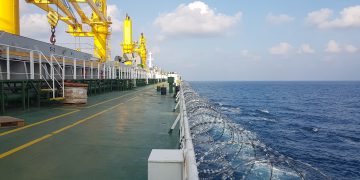

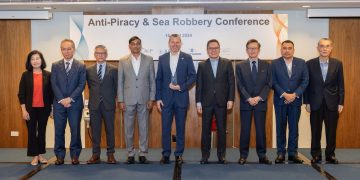







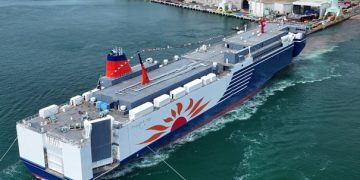
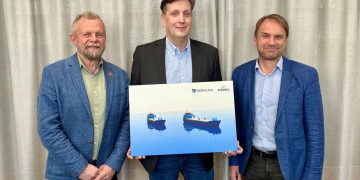

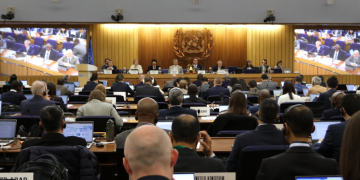
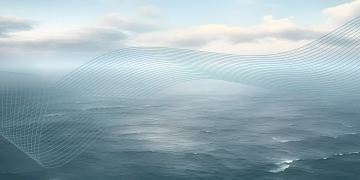

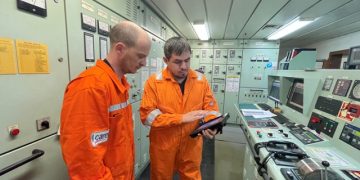


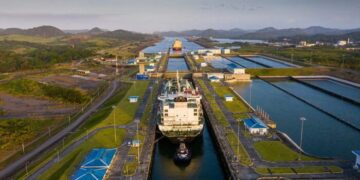
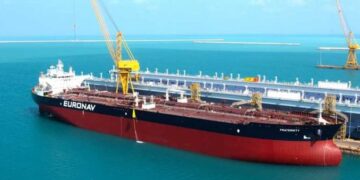

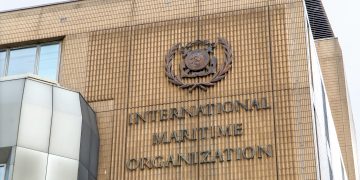




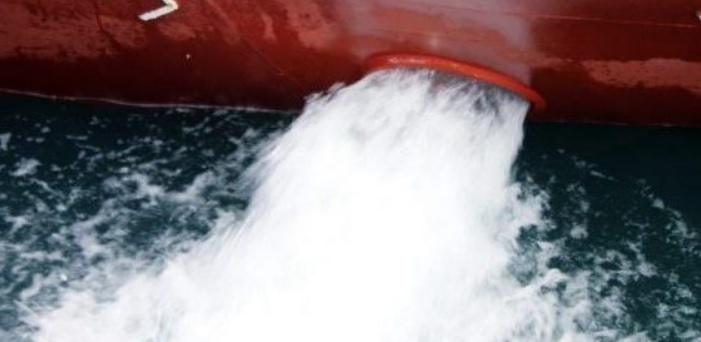






























Very poor presentation about Ballast Water Treatment Systems. I was anticipating to hear a good solution to all these “problems and issues” that were mentioned from speaker’s side. I didn’t hear any suggestion about his personal opinion of which BWTS (treatment method) is finally the best or the simplest one for a shipowner in order to decide to accomodate inside his vessel…